- Home
- Diane Capri
Secret Justice Page 8
Secret Justice Read online
Page 8
Like most signature dishes, once created by George’s chefs, the Gasparilla Goldbrick is now copied all over town. But none of the copies are as good as the original. When the dessert arrived, I ate mine with gusto. Having a mouth full of sundae had the added benefit of preventing me from talking.
When Suzanne finally excused herself to go “to the little girls’ room,” with a kiss on Dad’s cheek before she left the table, and George was called away to address a shortage of California wine he’d been experiencing since a fire burned all the stock in a Napa warehouse last year, I was face-to-face with Dad with nowhere to hide.
CHAPTER ELEVEN
Tampa, Florida
Monday 9:30 p.m.
January 29, 2001
WITHOUT THE CONVERSATIONAL COVER of work to engage us, he didn’t seem any more comfortable about our forced unity than I did.
“I loved your mother desperately, you know,” he finally said, playing with his wine glass and watching the light reflect off the crystal.
“I know, Dad.”
“I waited over twenty years to remarry.”
“I know.”
“Suzanne makes me happy, Willa. She’s bright and she’s bubbly. She’s as sweet as any girl I’ve ever known.” He was almost begging me to like her, but he didn’t look at me while he asked.
“Except one,” I reminded him.
“Yes. Except for Grace,” he sighed and looked up. “Grace was so much more than that. She was loving, kind, gentle.” He skipped a couple of beats.
“Quiet,” he said, and we both laughed at his reference to Suzanne’s unfortunate habit of prattling.
“It’s just a coincidence that Suzanne looks so much like Mom, hmmm?”
He seemed uncomfortable again now, never one to honestly discuss things that were unpleasant to him. “No. Of course not. It’s what drew me to Suzanne in the first place. I met her at a client’s office in New York. She’s an MBA, Willa. Did you know that? She’s not an airhead.”
I must have looked as doubtful as I felt. I’d seen no evidence to support that idea.
“She was working on a marketing campaign that her company wanted some extra insurance for. I was selling it to them. We just hit it off,” he said. “It only took me about two minutes to realize she wasn’t Grace, but, I don’t know, something about her appealed to me. Is that so terrible?”
He wanted my approval, asked for it, pleaded, really. What could I do? My demons were not his demons, after all.
He’d known my mother as an adult, and he’d loved her desperately. How long did I expect him to mourn?
But that wasn’t it, really. It wasn’t that he’d married that bothered me, although I would have appreciated a little notice and an invitation to the wedding. It was the choice he’d made.
I couldn’t look at Suzanne without thinking of my mother.
She looked nothing like Mom, in truth, when you studied Suzanne carefully. She had freckles and blue eyes like Mom, but where Grace Harper had been delicate and willowy, Suzanne was impish and childlike. There were other differences.
Suzanne was taller, broader, had more physical substance than Mom had. And the personality difference was so striking that it jarred me every time Suzanne opened her mouth.
Mom was a nurse and Suzanne’s expertise is sales. That said it all.
I knew Grace Harper wouldn’t be one bit satisfied that her husband had stayed single and alone all these years. Grace expected Jim to remarry, told him so and told me so, too, before she died.
Nor would she be happy with me if I was less than kind to Suzanne or to Dad. Grace would want me to try at least, and a lot harder than I had been trying so far with Suzanne.
I reached over and took Dad’s hand where he had laid it open on the table between us like he used to do when I was a child, like he was offering his heart to me, too, gently and without insistence, allowing me to make up my own mind but clearly communicating what he wanted.
“I feel blessed to have another chance at happiness at my age, Willa. I know I wasn’t the best father to you. I’m hoping to do better this time, to learn from my mistakes. I’m older now. Wiser, I hope. Will you help me?”
“That’s a little unfair, isn’t it?” I wasn’t really pouting. “I was five when you married Mom. I needed a father, too.”
“Yes. And I wasn’t good at that then. I was young. Just getting started in my career. And I made the biggest mistake a man can make. I thought I’d have more time. It never occurred to me that Grace and I wouldn’t be together forever.”
“Me, neither,” I told him.
Before I could say or do anything else, George and Suzanne returned to the table. They both noticed our clasped hands and smiled hugely.
George clapped Jim on the back and Suzanne gave him another kiss. Then she sat down quietly and allowed everyone to talk pleasantly for another hour.
She and George discussed the stock market’s recent plunge. She told me how much she admired our federal judiciary, explaining intelligently why she felt so.
I recognized, with a guilty twinge, that Suzanne must have been nervous about meeting us, unsure of her reception. Empathy is a sign of maturity. Maybe I was developing some.
When Dad reached over, took her hand, and suggested they go upstairs to bed, Suzanne said, “Good night, Aunt Willa. I so hope our baby has that cute little gap between her two front teeth that you have. Good night, Uncle Georgie. See you in the morning.”
Dad at least had the good grace to mouth the words “I’m sorry” as he herded her out the door, leaving “Uncle Georgie” and me at the table.
George had some things to do in the restaurant’s kitchen and I didn’t want to go upstairs, so I wandered into the Sunset Bar looking for some quiet time to think.
I picked up a Bailey’s Irish Creme and a cup of coffee and took it over to my favorite booth, which was always reserved for me. One of the perks of being married to the proprietor.
Just as I started to contemplate the vagaries of the universe, Marilee Aymes sat down across from me with a drink and a cigar. Since I was an outcast from my own flat, I broke my self-imposed rule and joined her in a satisfying Partagas.
I looked at the cigar, smelled it, tasted it, and wondered not for the first time whether fifteen dollars was just too extravagant for something that would intentionally go up in smoke.
According to the propaganda, Partagas cigars come from the Dominican Republic and are made from tobacco originally from Cuba. Hand-rolled, of course, and aged until just the right flavor was to be experienced. It was the aging, along with the Cuban tobacco, that made the limited reserves special. I lit this one with a sigh of pleasure.
“Penny for your thoughts,” Marilee said to me. Then, with a grin and the type of self-deprecating humor I liked her so much for, she said, “Since Otter got through with me, a penny’s all I have. I was supposed to meet the little toad here, but he hasn’t shown up. I’ll sit with you while I wait for him.”
I was searching for a safe topic of conversation. I really did not want to talk to Marilee about my father and Suzanne. But I wasn’t going to tell her that, either. “I was thinking about Gil and Sandra Kelley,” I said.
“Really? Whatever for?”
Because I’d seen them in the dining room at dinner, I thought. “Do you know them?”
“Sure. Knew Senior Kelley, too. He was a regular fixture around town. A philanthropist of the first order. And a really decent man. I liked him a great deal. His funeral was very, very well attended, so you know how folks felt about him.”
I hadn’t known Senior well. I think George did and had a lot of respect for him. Senior had dined here a few times, we attended the same parties, he belonged to the right clubs, gave to the right charities, had his picture made with the right people.
I’m told the bank prospered under his guidance. Since George’s restaurant is a large depositor and we’re the type of high-profile couple bankers like to get to know, Senior had made it hi
s business to eat here, just as his son does, who succeeded him as president when Senior died.
Then, being Marilee, she had to spice up the conversation. “Sandra’s been telling people that Senior stole money from the bank.”
“Why would she do that?”
“Who knows, where Sandra is concerned. That woman is as vindictive as a rattlesnake. Maybe Gil’s been having an affair again. But I’ve heard her say it myself. And heard about it from several folks in the last two weeks.”
“Do you believe it?”
“That Senior was a thief? Hell, no,” Marilee said, re-lighting her cigar. “But he might have used the bank’s money on the theory that it was his anyway. He owned the bank, you know. Or at least he did until it went public in the late 1970s.”
Marilee and I pondered in silence a while. Senior had been a wonderful, courtly Southern gentleman. I knew, but wasn’t about to say, that Gil, a man of only modest success in town, must have been a great disappointment to his father.
Whereas Senior had been honest, hardworking and straightforward, Gil was a party boy, more interested in having a good time than living the staid banker’s life. I’d heard that quite a few Old Tampa depositors had left the bank when Senior died.
George only continued to deposit there out of respect for Senior and concern for Sandra. The Kelleys had been posted at the club for failure to pay dues a few times. George was worried that they were having financial problems.
And he felt pretty secure in that Federal Deposit Insurance on his accounts.
“My favorite story about Senior’s character was why he sent Gil away to Miami to learn the business back in the fifties.” Marilee puffed her cigar and drank her bourbon straight while she told me. “Gil was a pretty wild kid around here in his high school days and his momma pet-ted him like he was the future king of England. She had lost a couple of babies and Gil turned out to be an only child. She treated him like a miracle and Senior indulged them both.”
She paused for a swig and a puff before she continued.
“Gil got into a bunch of minor scrapes that his daddy had to get him out of, but nothing that would have sent him to jail. Still, when he went off to Duke and then on to Florida for his MBA, the local mamas were pretty glad to have him away from their girls. Even then, he was a ladies’ man, flirting with any female in a skirt old enough to drive and young enough to walk unassisted.”
Marilee lifted her glass to the bartender and he brought her another bourbon. I could see she was just getting wound up, so I ordered another Bailey’s Irish Cream on the rocks and more coffee, but I was sipping slowly and listening carefully.
“Anyway, when Gil came home from school, he started up with his old tricks.”
“Like what, specifically?”
Marilee looked at me with one eye open, peering through the amber liquid in her glass. “Gil had a pretty rip-roaring summer that year. He dated several local girls, bedded a few, crashed a couple of cars, stayed out late, drank, gambled, and generally just sewed his wild oats, as Senior put it to the local cops more than once.”
“Was he actually arrested?”
“I doubt it. In those days, Tampa cops didn’t arrest a guy like Gil Kelley. But they picked him up and brought him home, and Senior felt obligated to smooth it over. Until Gil went too far.”
“In what way?”
“Well, it turned out that one of the many local girls Gil had taken a shine to was the daughter of the McCarthy citrus empire. You’ve heard of those folks, haven’t you?”
“Hasn’t everyone?”
McCarthy had sold out to one of the big conglomerates right after we came to Tampa, for several billion dollars. They made everything from orange juice to sausage.
Every grocery store in America had examples of McCarthy labeled products in their pro-duce, meat and dairy isles. In Tampa, you could hardly buy anything else.
“Yes. Well, old man McCarthy was fit to be tied. Threatened to pull all his money out of the bank. He wasn’t about to have his daughter messed up with the likes of Gil Kelley. No-siree-bob.” Marilee slapped her glass down on the table and ordered another bourbon.
This had to be her standard practice for getting served, I guess. It worked. The bartender scurried over with another bourbon and I made a mental note to get someone to drive Marilee home later.
“So what happened?” I asked her, impatient for the punch line.
“Mariam McCarthy got pregnant, that’s what happened. And Gil Kelley ‘borrowed’ some money from the bank to send her to Paris for an abortion. Or at least that’s the story that made the rounds at the time. Senior found out about it and shipped Gil off to Miami for two years until Old Man McCarthy could get over it and find his daughter someone else to marry.”
Marilee finished her story with the bulldog look I’ve seen on her face a thousand times. The one that said she was telling the truth and if you didn’t believe it, well, then, that was just your problem.
But I believed her. And I felt sorry for Mariam McCarthy. “What happened to her?”
CHAPTER TWELVE
Tampa, Florida
Monday 11:00 p.m.
January 29, 2001
“SHE STAYED IN FRANCE for a while, but then she came back to live in Tampa and married Ozgood Richardson. Didn’t you know?”
The CJ’s wife? Had a torrid affair with Gil Kelley? Hard to believe, even if they were both young and foolish at the time.
Actually, it was hard to believe Mariam McCarthy Richardson had ever been young and foolish. All the times I’ve been around her, she’s been about as interesting as paint dust.
I couldn’t believe she had suffered a broken heart at Gil Kelley’s hands, but I did believe that if she had, she’d be mortified to be living in the same town with him.
And I also understood why Kelley was a reluctant member of the Tampa social scene. He wasn’t welcome at many clubs and parties. Old Tampa has a long memory and wouldn’t have condoned such behavior, even in a young man. Especially if Mariam Richardson was there to put the kibosh on it.
Marilee and I talked for another hour or so before I got one of the waiters to drive her home and gave him cab fare back. Then, I went in and talked to George for a while before going up to bed with a great deal on my mind and hoping that all of our house guests had already retired for the night.
Tuesday morning, the U.S. v. Otter file was on my desk, along with stacks of other files, mail, and stuff that had spontaneously generated in the night. I looked at the notes I’d left for myself on what I’d planned to do today.
A few years ago, I started making a list at the end of every day for tomorrow’s work. It was the only way I could make any sense of my workload. Otherwise, I’d start the day with a plan and within minutes, be completely overtaken by the waves of work that flowed into my office as the tide overflows our beach.
While the tide ebbs and flows on a regular daily cycle, my work remains for years. Since I became a judge, I understand the story of Sisyphus on a personal level.
The Greek who was condemned to forever push the boulder up the hill was a perfect mascot for judicial work.
Today’s project list said: “No. 1 - Check Ron Wheaton’s history; No. 2 - Review U.S. v. Otter file.”
While my ancient government issue computer was booting up, to use my time wisely, I pulled the U.S. v. Otter file over toward me and took a look at it, once again lusting after the new courthouse where the judges had much newer, faster computers.
The second I started reading the U.S. v. Otter file, I forgot about my computer search altogether. Otter was being prosecuted for conspiracy to commit fraud, money laundering, witness tampering and fraud.
What was surprising was the number and caliber of people who claimed to have been fleeced by this rather ordinary man. People who should have known better. Educated people, who were obviously wealthy to have paid Otter the millions they claimed, but must have had more dollars than sense.
The indictment charge
d that Otter had sold, cleaned, cut, appraised, and consigned diamonds and other jewelry to the listed twenty complainants, and countless unnamed others.
All along, the indictment said, Otter had given his customers cheap imitations. When sued by fleeced customers, Otter counter-sued for slander and reached confidential settlements for less than his customers’ losses, so complaints about him never spread.
Like Fitzgerald House, several of the complainants were also involved in civil suits against Otter. Many of the complainants were names I recognized and a few were people I knew personally: celebrity golfers, performers, national and local businessmen.
The claims were eerily similar. In paragraph after paragraph, the indictment named individuals who had bought jewelry created by famous designers, now deceased.
The most frequently mentioned was the award-winning Paulding Farnham, one of the world’s most talented and artistic designers of fine jewelry. At the Paris Exposition of 1889, Farnham had received the gold medal for his Tiffany & Co. jewelry designs.
Farnham’s exquisite designs helped Tiffany’s become the leader in the field of fine jewelry and silver.
In several paragraphs, Otter was alleged to have sold copies of Farnham’s award-winning, twenty-four karat gold-and-enamel orchid brooches, and other pieces of Farnham’s original work, to unsuspecting customers.
In some instances, the original designs were now featured in public collections at the Metropolitan Museum of Art, the High Museum in Atlanta, and others, the indictment said.
But Otter told his customers that Farnham created designs for private customers, as well, selling his copies as Farnham’s originals.
Because Farnham left Tiffany & Co. in 1908, when he was just forty-eight years old, the claim that he had continued to create one-of-a-kind jewelry for many years thereafter was certainly plausible.
People who should have known better believed it.
Otter had sold a pin consisting of a cluster of white tigers to a famous illusionist. It was made of diamonds in several colors. The diamonds were later determined to have been treated with radiation, and so were less valuable than the illusionist had believed.

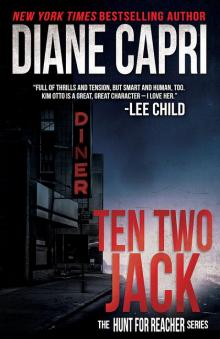 Ten Two Jack
Ten Two Jack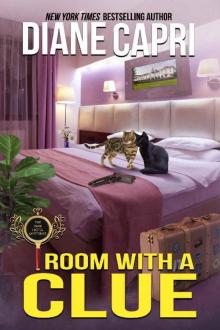 Room with a Clue: A Park Hotel Mystery (The Park Hotel Mysteries Book 3)
Room with a Clue: A Park Hotel Mystery (The Park Hotel Mysteries Book 3)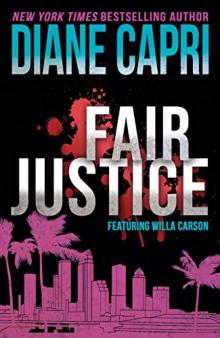 Fair Justice
Fair Justice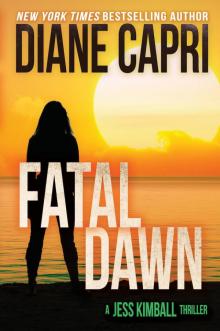 Fatal Dawn
Fatal Dawn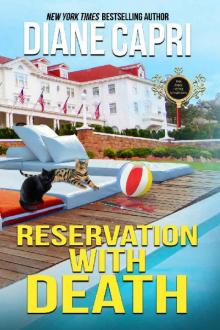 Reservation with Death
Reservation with Death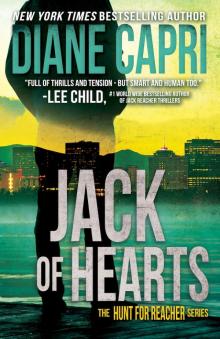 Jack of Hearts
Jack of Hearts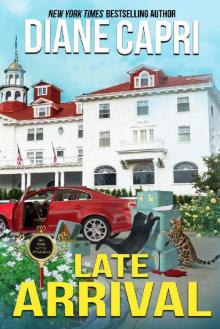 Late Arrival: A Park Hotel Mystery (The Park Hotel Mysteries Book 4)
Late Arrival: A Park Hotel Mystery (The Park Hotel Mysteries Book 4)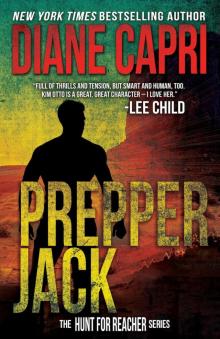 Prepper Jack
Prepper Jack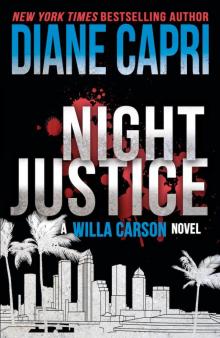 Night Justice
Night Justice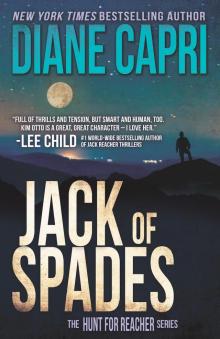 Jack of Spades
Jack of Spades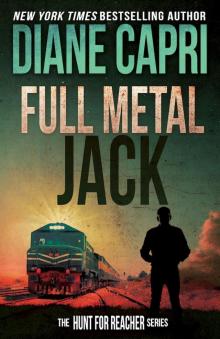 Full Metal Jack
Full Metal Jack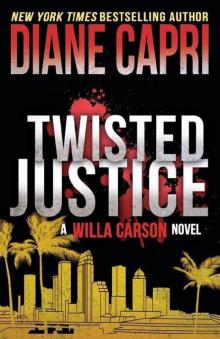 Twisted Justice
Twisted Justice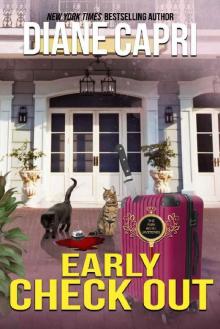 Early Check Out
Early Check Out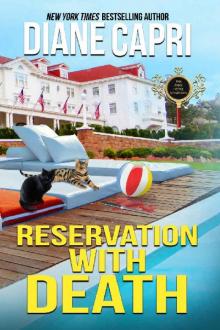 Reservation with Death: A Park Hotel Mystery (The Park Hotel Mysteries Book 1)
Reservation with Death: A Park Hotel Mystery (The Park Hotel Mysteries Book 1)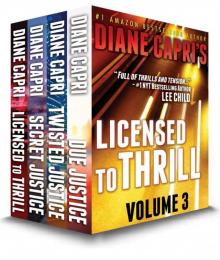 Licensed to Thrill: Volume 3
Licensed to Thrill: Volume 3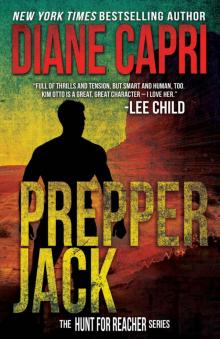 Prepper Jack: Hunting Lee Child's Jack Reacher (The Hunt For Jack Reacher Series Book 12)
Prepper Jack: Hunting Lee Child's Jack Reacher (The Hunt For Jack Reacher Series Book 12) False Truth 4 (Jordan Fox Mysteries)
False Truth 4 (Jordan Fox Mysteries)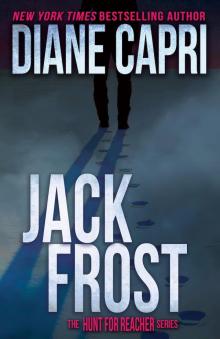 Jack Frost
Jack Frost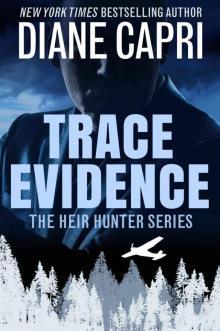 Trace Evidence (The Heir Hunter Book 2)
Trace Evidence (The Heir Hunter Book 2) Fatal Heat
Fatal Heat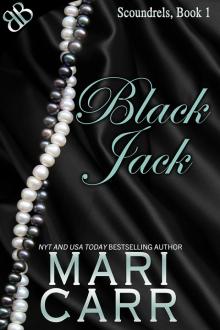 Black Jack
Black Jack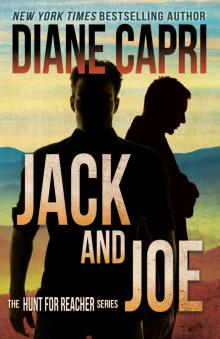 Jack and Joe
Jack and Joe False Truth 3 (Jordan Fox Mysteries)
False Truth 3 (Jordan Fox Mysteries)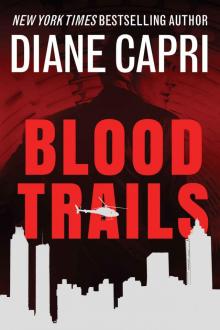 Blood Trails
Blood Trails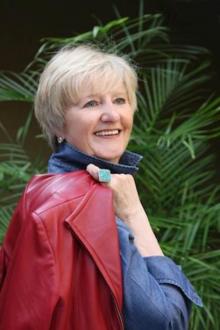 Don't Know Jack
Don't Know Jack Licensed to Thrill: Volume 2
Licensed to Thrill: Volume 2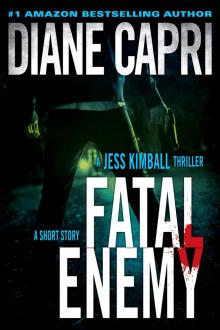 Fatal Enemy
Fatal Enemy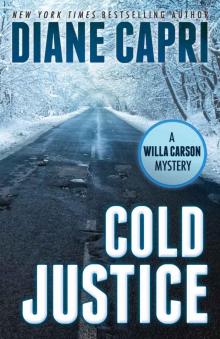 Cold Justice: A Judge Willa Carson Mystery (The Hunt for Justice)
Cold Justice: A Judge Willa Carson Mystery (The Hunt for Justice)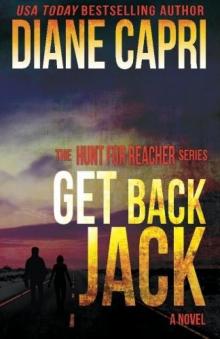 Get Back Jack
Get Back Jack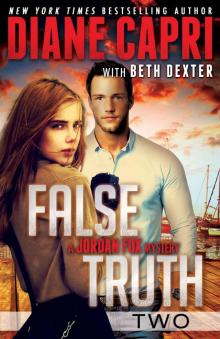 False Truth 2 (Jordan Fox Mysteries Series)
False Truth 2 (Jordan Fox Mysteries Series)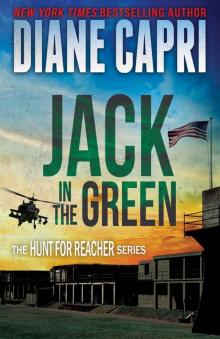 Jack in the Green
Jack in the Green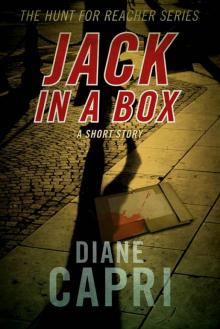 Jack In A Box
Jack In A Box![[Jess Kimball 01.0 - 02.0] Fatal Starts Read online](http://i1.bookreadfree.com/i1/04/01/jess_kimball_01_0_-_02_0_fatal_starts_preview.jpg) [Jess Kimball 01.0 - 02.0] Fatal Starts
[Jess Kimball 01.0 - 02.0] Fatal Starts False Truth 8-10: 3 Action-Packed Romantic Detective Mystery Thrillers To Keep You Up All Night (Jordan Fox Mysteries Series)
False Truth 8-10: 3 Action-Packed Romantic Detective Mystery Thrillers To Keep You Up All Night (Jordan Fox Mysteries Series) False Truth 1 (Jordan Fox Mysteries)
False Truth 1 (Jordan Fox Mysteries)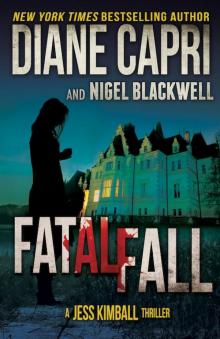 Fatal Fall
Fatal Fall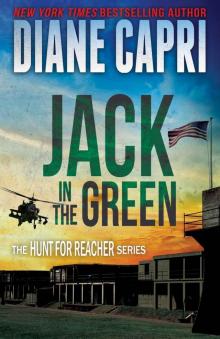 Jack in the Green (The Hunt for Jack Reacher Series)
Jack in the Green (The Hunt for Jack Reacher Series)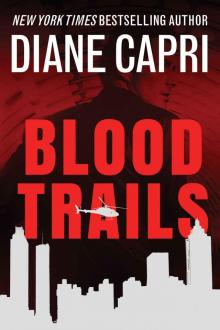 Blood Trails (The Heir Hunter Book 1)
Blood Trails (The Heir Hunter Book 1) Hit the Road Jack
Hit the Road Jack Jack and Kill (Hunt For Reacher (Short Story #2))
Jack and Kill (Hunt For Reacher (Short Story #2))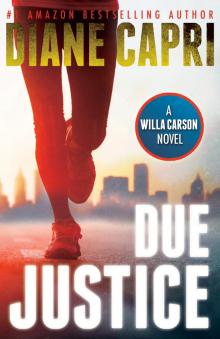 Due Justice
Due Justice False Truth 10 (Jordan Fox Mysteries Series)
False Truth 10 (Jordan Fox Mysteries Series) Florida Is Murder (Due Justice and Surface Tension Mystery Double Feature) (Florida Mystery Double Feature)
Florida Is Murder (Due Justice and Surface Tension Mystery Double Feature) (Florida Mystery Double Feature) False Truth 7 (Jordan Fox Mysteries)
False Truth 7 (Jordan Fox Mysteries) Fatal Bond
Fatal Bond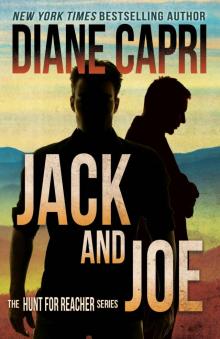 Jack and Joe: Hunt for Jack Reacher Series (The Hunt for Jack Reacher Series Book 6)
Jack and Joe: Hunt for Jack Reacher Series (The Hunt for Jack Reacher Series Book 6) Fatal Demand: A Jess Kimball Thriller
Fatal Demand: A Jess Kimball Thriller![[Jordan Fox 01.0 - 04.0] False Truth Read online](http://i1.bookreadfree.com/i2/04/08/jordan_fox_01_0_-_04_0_false_truth_preview.jpg) [Jordan Fox 01.0 - 04.0] False Truth
[Jordan Fox 01.0 - 04.0] False Truth False Truth 6 (Jordan Fox Mysteries)
False Truth 6 (Jordan Fox Mysteries) Deadly Dozen: 12 Mysteries/Thrillers
Deadly Dozen: 12 Mysteries/Thrillers Jack and Kill
Jack and Kill Fatal Edge: A Jess Kimball Thriller (The Jess Kimball Thrillers Series Book 6)
Fatal Edge: A Jess Kimball Thriller (The Jess Kimball Thrillers Series Book 6)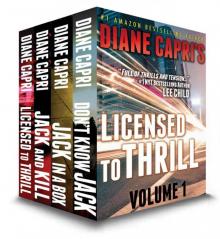 Licensed to Thrill: Volume 1
Licensed to Thrill: Volume 1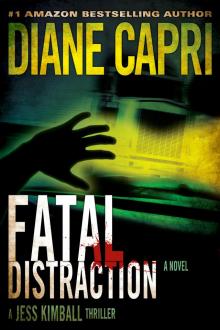 Fatal Distraction
Fatal Distraction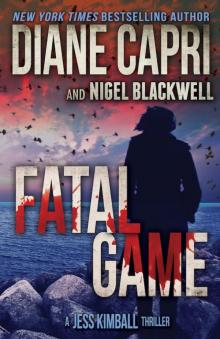 Fatal Game
Fatal Game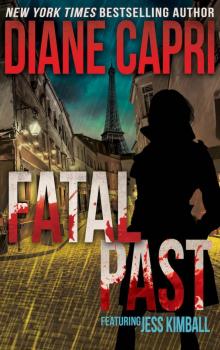 Fatal Past: A Jess Kimball Thriller
Fatal Past: A Jess Kimball Thriller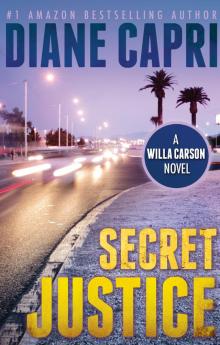 Secret Justice
Secret Justice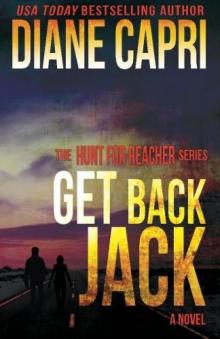 Get Back Jack (The Hunt for Jack Reacher 4)
Get Back Jack (The Hunt for Jack Reacher 4)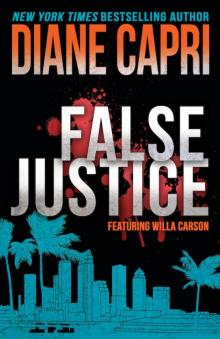 False Justice
False Justice